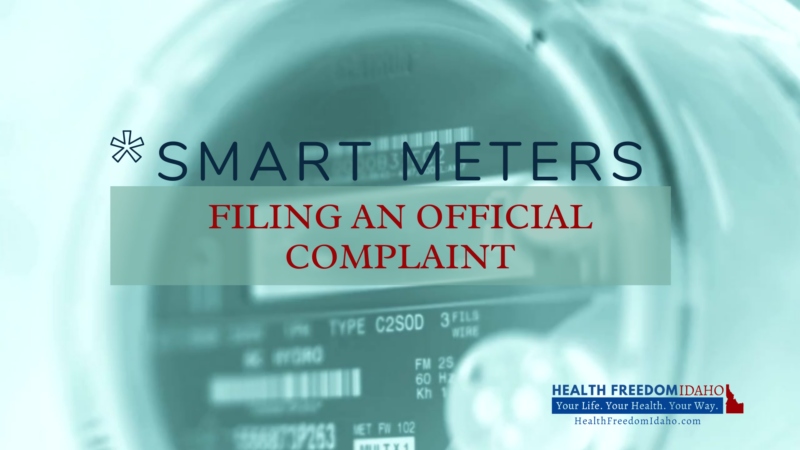How psychiatric drug use & lack of dietary support play a prominent role in school shootings VIDEO INTERVIEW

If you are concerned about reports of violent, depressive and anti-social behavior and the use of psychotropic and pharmaceutical drugs to treat it, I’d like to share my conversation with Dr. Karen Lee from Wholistic Vitality on Wellness Wednesday. Our discussion focuses on using dietary support to recover from panic, anxiety, insomnia, depression and related symptoms, Leaky Gut, GMOs, psychiatric drugs and how to support brain and nervous system function naturally.
This webinar is germane to current conversations on school shootings and unstable behavior, and how to consider getting out from underneath dependence on psychiatric drugs that have documented side-effects.
What is the connection between psychiatric drug use and the expression of anti-social and violent behavior? I thought psychiatric drugs were supposed to be effective in treating these types of symptoms?
Documentation on psychiatric drugs used to treat mental illness shows a list of side-effects that match what we are seeing in individuals who are perpetrators of the very crimes we are reading about in media reports. There is a growing list of events where the perpetrators of violent crimes were on some type of psychotropic medication.
A study published in Social Psychiatry and Psychiatric Epidemiology in June 2014 shows psychotropic drugs could make people nearly six times more likely to kill themselves. In August 2013, the Department of Health and Human Services and the Centers for Medicare and Medicaid Services reported: “Antidepressant medications have been shown to increase the risk of suicidal thinking and behavior. In a pooled-analysis of short-term, placebo-controlled trials of nine antidepressant medications, patients taking an antidepressant had twice the risk of suicidality in the first few months of treatment than those taking placebo. The long-term risk is unknown.”
I healed from digestive issues that were causing insomnia, panic, anxiety, depression, and suicidal thoughts with the GAPS Diet from Dr. Natasha Campbell McBride, M.D., author of Gut and Psychology Syndrome. Dr. McBride has many years of research, clinical experience and success in healing patients and with her own son who was diagnosed with autism at a young age. She provides educational presentations, and has a web site with more information here.
If you have experienced insomnia or panic and anxiety symptoms, learn more about how I recovered from these chronic issues which affected me for over 20 years: The GAPS Diet for insomnia, panic, and anxiety. I did this without drugs and using real, healing, traditional foods.
What if I experience other symptoms such as violent/angry outbursts, anti-social, disassociative and disaffective behavior. Could GAPS or similar protocol help?
Dr. Natasha Campbell McBride specifically addresses symptoms associated with ASD (autism spectrum disorder), ADD/ADHD, hyperactivity, dyspraxia, learning disorders, depression, and even schizophrenia in her book Gut and Psychology Syndrome. She explains how chronic nutrient-deficiencies and imbalance of gut flora in the digestive tract and immune system contributes to and/or causes these syndromes. Our brains and nervous systems cannot function optimally without real nutrients and digestive tract support which promotes optimal flora balance.
Processed foods and synthetic nutrients in these products and supplements exacerbate symptoms because:
1) Our bodies cannot absorb artificially-created nutrients from food laboratories; they need natural, living nutrients from real, organic foods with corresponding cofactors that allow for maximum absorption and dietary support.
2) Products with harmful ingredients such as preservatives, flavor enhancers, dough conditioners, modified food starch, MSG and others represent a majority of what’s available on the consumer market. These products add to the insult of nutritional deficiency and cause the body to become overloaded with toxins that contribute to a large number of chronic health issues including auto-immune disease such as diabetes, asthma, autism, ADHD/ADD, rheumatoid arthritis, inflammatory issues such as liver congestion, heart disease, stroke, obesity and cancer.
Our environments and diets affect our gut lining, the blood-brain barrier and mechanisms by which our brains and nervous systems function. Based on the research and my own observations, experience, it is definitely no stretch so say that those with ANY mental and psychological disorders could realize a reduction in psychiatric symptoms and benefit from the GAPS protocol.
Statistics on mental illness and insomnia
From Mental Health America’s web site: anxiety disorders are among the most common mental illnesses in America; over 21% of adults (42.5 million) are affected by these debilitating illnesses each year. (2012)
According to the Anxiety and Depression Association of America:
“…anxiety disorders are the most common mental illness in the U.S., affecting 40 million adults in the United States age 18 and older (18% of U.S. population). Anxiety disorders cost the U.S. more than $42 billion a year, almost one-third of the country’s $148 billion total mental health bill, according to ‘The Economic Burden of Anxiety Disorders’, a study commissioned by ADAA (The Journal of Clinical Psychiatry,60 (7), July 1999).”
Clearly we have decades of these reports showing that mental illness has a significant impact on our well-being!
A report from Medco shows the use of medications used to treat psychological and behavioral disorders increased 22 percent between 2001 and 2010:
“…more than one‐in‐five adults was on at least one of these medications in 2010. Women are far more likely to take a drug to treat a mental health condition than men, with more than a quarter of the adult female population on these drugs in 2010 as compared to 15 percent of men.”
From Sleep Education:
Among adults in the U.S.:
• 30 to 35% have brief symptoms of insomnia.
• 15 to 20% have a short-term insomnia disorder, which lasts less than three months.
• 10% have a chronic insomnia disorder, which occurs at least three times per week for at least three months.
I would guess those numbers are probably higher due to the fact that not all incidences are reported. I never wanted to be someone who relied on medication for anxiety, but at least a few times before I resolved my issues with food, I became desperate and took drugs.
What I learned is that those drugs didn’t solve the actual cause of the problem. In fact, things only became worse while taking those medications.
Data on psychiatric drug use and violence-inducing effects of these medications on behavior and mood
Here is a list of the total number of people taking psychiatric drugs for mental illness in the U.S.
Kelly Brogan M.D. on the violence-inducing effects of psychiatric medication.
James Corbett report on SSRI usage (psychotropic medications) and school shootings, including prescription medications Zoloft, Prozac, Paxil, and Celexa:
The FDA claims that “antidepressants may increase suicidal thoughts or actions in some children, teenagers and young adults within the first few months of treatment.” The Ministry of Health in Japan has stated, “There are cases where we cannot rule out a causal relationship of [hostility, anxiety, and sudden acts of violence] with the medication.”
Can I stop taking drugs and recover from sleep issues, anxiety, panic disorder, depression, and unstable behavior naturally?
I am not a doctor and I cannot guarantee a change or improvement in anyone’s unique situation. As I stated in my discussion with Dr. Karen Lee, individual results on the GAPS or similar protocol will vary with the individual’s unique health profile and situation. The truth is, results are largely dependent on your own commitment to healing and wellness. Ask yourself this question: do you believe adapting dietary and lifestyle changes would be worth eliminating dependence on prescription drugs that may only be managing symptoms, rather than getting at the root cause of your problem?
If the answer is yes, you have nothing to lose but fear and chronic health issues. I highly recommend listening to my conversation with Dr. Karen Lee about how GAPS allowed me to overcome issues that crippled my life for over two decades. I am so grateful for the gift of restored sleep and improved health and wellness given to me by a healing diet that includes real, traditional foods.
When you consider that patients who are prescribed these psychotropic drugs are not accurately informed by doctors about the documented risks which carry 286 drug regulatory warnings, 278 studies, and over 400,000 adverse reaction reports filed with the U.S. FDA, it starts to become apparent that anyone would have much to lose by becoming dependent upon these substances; drugs that are scientifically observed to cause chemically-alterting effects on the body, and with dangerous side effects.
You could say that you have everything to gain by changing your diet and using real, nutrient-dense foods to help overcome nutritional deficiencies and gut dysbiosis that could very easily be connected to debilitating psychiatric symptoms.
More information:






